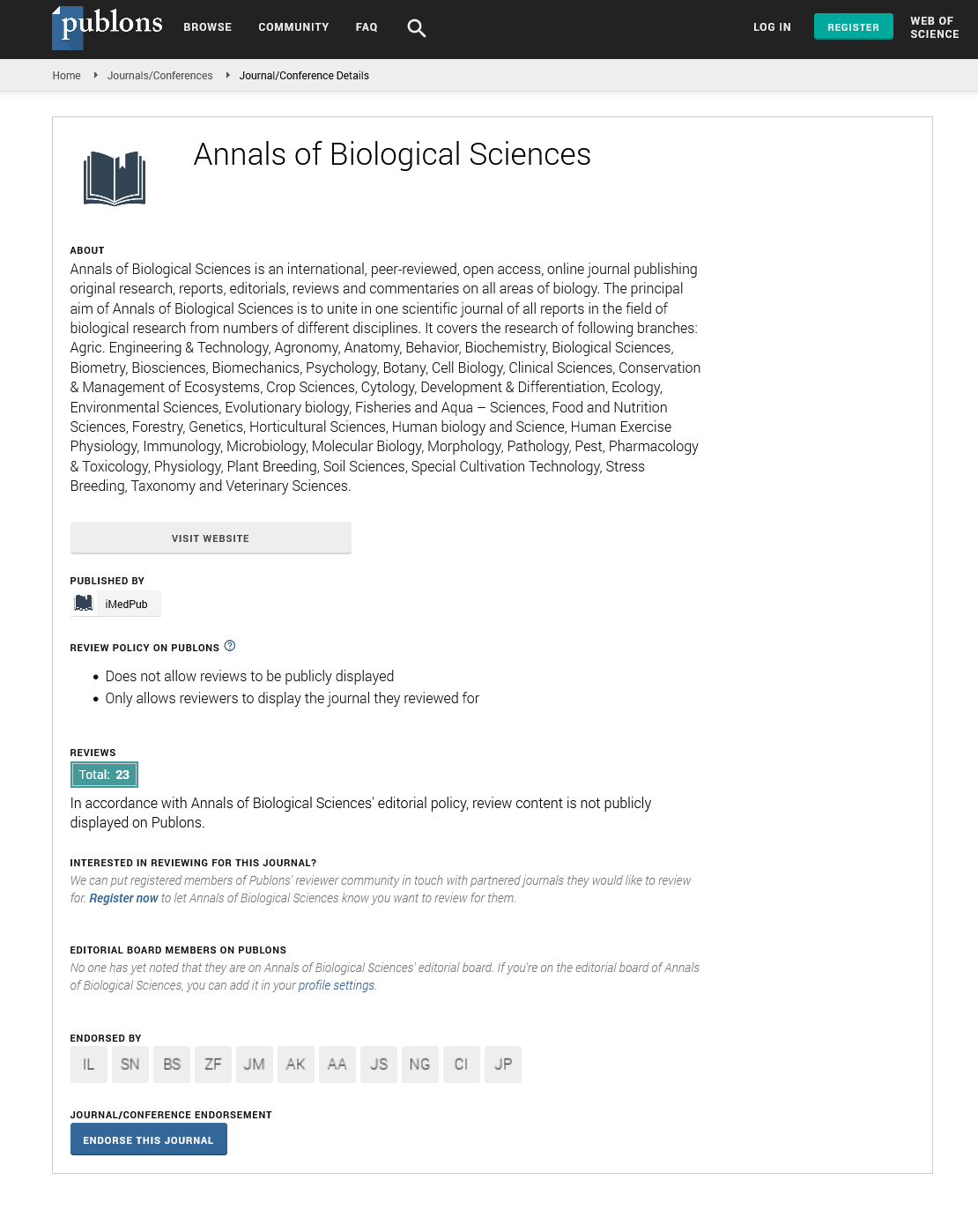ISSN : 2348-1927
Annals of Biological Sciences
Abstract
Implication of Gut Microbiome in Brain Chemistry and Behavior
Human microbiome colonization starts during the birth and keeps modulating and establishing itself till adult stage. Advances in research techniques have shown evidences displaying the role of microbiome in brain and behavior development in addition to its involvement in immune, metabolic and physiologic function. Dysbiosis of gut microbiome disturbing the homeostasis with host leads to various diseases. Absence of microbiome in mouse affects the stimulation of nerves with simultaneous changes in behavior and brain chemistry. The perturbed microbiota during neonatal life leads to behavioral shifts which may persist even in adulthood. Short chain fatty acid (SCFA) released after microbial fermentation of undigested food components are able to regulate microglia homeostasis which serve as macrophages of the central nervous system (CNS) and are critical in CNS diseases. Impaired microglia signaling is implicated in neurodevelopmental, neurodegenerative disorders and aging. The administration of antimicrobial agents in mice has revealed altered anxiolytic behavior and correspondingly the brain chemistry, i.e., changes in brain derived neurotrophic factor (BDNF) level. The administration of combinations of probiotic bacteria affect brain function including anxiety, mood, and memory indicating their potential use in therapeutic approach depending upon their strain specific effect. Thus these accumulating reports indicate relevance of gut microbiome in brain chemistry and physiology consequently in brain related disorders.
Author(s): Reena Kumari, Nirmal Verma
Abstract | Full-Text | PDF
Share This Article
Google Scholar citation report
Citations : 406
Annals of Biological Sciences received 406 citations as per Google Scholar report
Annals of Biological Sciences peer review process verified at publons
Abstracted/Indexed in
- Google Scholar
- China National Knowledge Infrastructure (CNKI)
- WorldCat
- Publons
- ROAD
- Secret Search Engine Labs
Open Access Journals
- Aquaculture & Veterinary Science
- Chemistry & Chemical Sciences
- Clinical Sciences
- Engineering
- General Science
- Genetics & Molecular Biology
- Health Care & Nursing
- Immunology & Microbiology
- Materials Science
- Mathematics & Physics
- Medical Sciences
- Neurology & Psychiatry
- Oncology & Cancer Science
- Pharmaceutical Sciences
